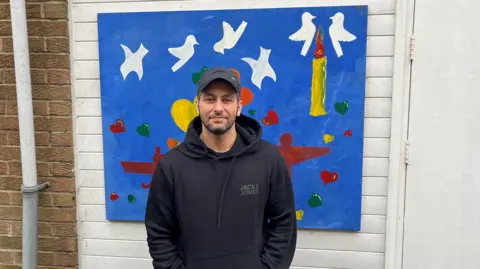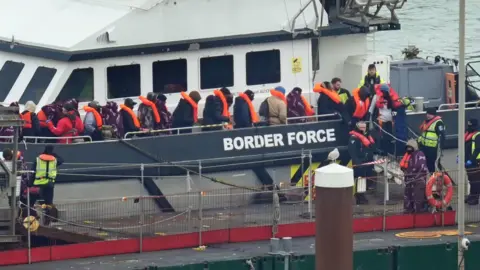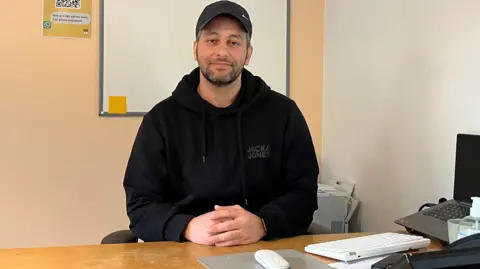Citizenship plan 'puts me on blacklist' - refugee
 BBC
BBCA refugee granted asylum in the UK has hit out at the government's plans to make it almost impossible for anyone who arrives on a small boat to become a British citizen.
New guidance states those who enter the country illegally will normally be refused citizenship, regardless of the time that has passed.
Tarik Alali, who settled in Newcastle, arrived from Syria on a dinghy in 2021. Although he has been granted asylum - which means he is entitled to live in the UK - under the rules he now has little chance of ever becoming a citizen.
He said he felt the policy was "discriminatory" and putting him "on a blacklist". The Home Office said it took its "international obligations very seriously".
As at 10 February, 1,554 people had crossed the Channel since the start of 2025, according to official figures.
In 2024, almost 37,000 people were detected making the crossing in small boats.
Mr Alali, who was forced to seek asylum following unrest in Syria, said there were "no words" to describe the boat journey he took to get to the UK.
"The dinghy was overcrowded and you are in the middle of nowhere," he said. "You couldn't see anything - especially in the dark.
"What makes it even more terrifying [is when] a very big ship comes in and you think that's it - it's going to hit you and you're going to drown in the water."
He said the reason he made the journey was because he knew if he went back to Syria he would die.
"But if I take a chance [on the boat]... I think and I believe there is hope," he added.
 PA Media
PA MediaMr Alali said he wanted to come to the UK because he spoke English and believed he had a better chance of a new life here than elsewhere in Europe, where he would have had to "start from zero".
He said he would have taken safe and legal routes into the UK if they had been available, adding: "But where are they?"
Mr Alali was granted asylum about a year and a half after he arrived and now works in the refugee sector.
'Sense of belonging'
New Home Office guidance states anyone who enters the UK illegally having made a dangerous journey will normally be refused citizenship, regardless of the time that has passed.
Previously, those who had arrived by irregular routes would need to wait 10 years before being considered.
This means Mr Alali will never be able to vote in England or get a British passport.
When asked about the policy, he said "I feel it is discriminating. I think it is wrong.
"I'm working, I'm paying my rent and my tax - I'm giving back to the society.
"It feels like they are putting me on a blacklist."

Mr Alali said Newcastle was his home and spoke of his admiration for those who live there.
"It's the people, I can't describe it," he said, adding: "If you live in this place, you have friends, you start a life... then you start having the feeling of belonging."
He said the new rules had compromised that feeling, adding: "No matter how long I stay here... at the end of the day they [the Home Office] might just ask me to leave."
The Home Office said its policy provided for citizenship applications to be granted depending on "mitigating circumstances".
This could include "positive factors" such as the contribution a person has made to society, a spokesperson said.
Children would be considered "sympathetically", they added.
Separately, Labour's Border Security, Asylum and Immigration Bill, which scraps the Tory Rwanda plan and boosts police powers against smugglers, has cleared its first vote in the House of Commons.
